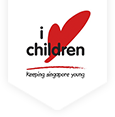7 August 2012, by Mandy Loh
When to stop nursing?
It has become a well-known and undisputed fact that breast milk is the best source of nutrition for an infant, and international bodies such as the World Health Organisation (WHO) recommends mothers worldwide to exclusively breastfeed their infants for the first six months to achieve optimal growth, development and health.
What happens after that? Although the WHO encourages breastfeeding to continue (complementing the introduction of solid food, of course) up till a child is 2 years of age or even beyond, most people seem to believe that weaning should be completed at or around the child’s first birthday.
I suppose there are numerous practical reasons why many moms prefer to stop breastfeeding when a child turns one. Working moms have to spend chunks of precious time expressing their milk during the work day, and from personal experience, it is really quite a hassle to wash the pump parts and bottles, store and transport the milk, and repeat this process every single day. It is already a huge commitment to keep this up for an entire year, and kudos to all working moms out there who have done this. You are awesome!
Yet another reason might be that the mother has to be apart from her child for a length of time (perhaps for an overseas trip), thereby necessitating weaning. A third reason might be the desire to have a subsequent child, which means that nursing, as a natural contraception, has to be discontinued.
However, in the absence of practical challenges/ obstacles, when a mother decides to stop nursing her child is a purely personal, and oftentimes, emotional decision. Nursing is an incredibly special activity that bonds mother and child, providing not just nourishment, but also comfort and warmth. If the situation permits, and both mother and child are comfortable with it, extended breastfeeding is a wonderful option to consider after the first year.
Some of the benefits of nursing into the second year include:
– continued immunity protection for the child (as long as a child is breastfeeding, he benefits from the mother’s immunity to illness)
– nutrition (especially useful with toddlers’ notoriously picky eating habits. The beauty of breast milk is that its composition changes as the child grows older, containing protein, fats and other good stuff that is nutritionally appropriate for his age.)
– calming effect (very useful when tantrums start rearing its ugly head)
– higher IQ and quicker motor skill development (according to some studies)
– (for moms) continued weight loss (Yeah! ’nuff said!)
To be honest, I had not really given much thought as to when exactly I would stop nursing Cristan. The list of benefits above did not factor much into consideration. (Actually no, I’m lying. The extended weight loss programme definitely appeals, but I digress…) It was more a matter of the both of us just continuing on with life as per normal. You see, as a stay-home mom, I have the privilege of always being nearby and available to nurse him, as and when he wants to. And the funny thing is, after he turned one, he seems to want to nurse even more often than before!
At this stage, I’m confident that he is receiving most, of not all, of his nutrition from solid food, with 3 square meals and an afternoon snack every day. So I know he is nursing just for comfort. But I’m happy to let this continue for as long as Cristan likes. And secretly, I’m glad that he still wants to nurse because I’m enjoying it too.
I’m quite sure I’ll be sad when he eventually weans completely. But don’t worry, we’ll definitely end this nursing business by the time he goes off to college!
Tags : benefits of breastfeeding, breast milk, extended breastfeeding, nursing after one, nursing toddler, WHO
Posted on : August 7, 2012
Filed under : Uncategorized


1 Comment
Alex
August 8th, 2012 at 12:05 am
Wow, you’re still nursing Cristan! Keep up the good work. 🙂